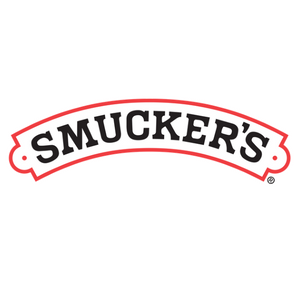Shareholder Advocacy Spotlight: Smuckers, Slavery, and Seafood
 Global consumption of seafood is growing, particularly as U.S. pet owners feel increasingly inclined to serve real fish to their cats and dogs. The average U.S. cat eats more than twice what the average person eats per year.[1] To meet this growing demand, we are seeing increased exploitation of vulnerable worker populations, particularly in seafood rich areas of Asia. Pet food imports from Thailand, for example, more than doubled between 2009-2014 making it among the fastest growing exports to the U.S.[2] In 2014, Associated Press investigators traced pervasive use of slave labor in the fishing industry in Southeast Asian waters to several major U.S. and European food companies.[3]
Global consumption of seafood is growing, particularly as U.S. pet owners feel increasingly inclined to serve real fish to their cats and dogs. The average U.S. cat eats more than twice what the average person eats per year.[1] To meet this growing demand, we are seeing increased exploitation of vulnerable worker populations, particularly in seafood rich areas of Asia. Pet food imports from Thailand, for example, more than doubled between 2009-2014 making it among the fastest growing exports to the U.S.[2] In 2014, Associated Press investigators traced pervasive use of slave labor in the fishing industry in Southeast Asian waters to several major U.S. and European food companies.[3]
The findings resulted in the rescue of more than 2,000 enslaved fishermen and several industry and government investigations. Trillium began engaging several companies including Costco, Target, and Smuckers on the management of human rights risks in its supply chain. While Costco and Target acknowledged the escalating problem and disclosed efforts to address forced labor in their seafood supply chain, Smuckers was publicly silent.
Smuckers, which built its brand selling fruit spreads almost 120 years ago, made an abrupt shift into pet food when it purchased Big Heart Brands in 2015, a major manufacturer and distributor of pet food and snacks including Meow Mix, Milk Bone, and Natural Balance. Following the $5.8 billion dollar acquisition, Big Heart Brands was accused of selling slave tainted seafood products.
In February 2016, Trillium and Portico Benefit Services, supported by the Interfaith Center on Corporate Responsibility (ICCR), decided to engage Smuckers on this critical issue by filing a shareholder proposal asking management to disclose the process for identifying existing and potential human rights risks in its supply chain. Building on Trillium’s history of constructive dialogue with Smuckers’ management (most recently concerning the risks of climate change to its coffee supply chain) we raised the risks of severe labor and human rights violations to its reputation for operational excellence. The proposal argued the business case and moral imperative to demonstrate its corporate responsibility to protect human rights, a tenet of the U.N. Guiding Principles on Human Rights.
In June 2016, Trillium successfully withdrew the shareholder proposal. In exchange, the company committed to strengthening its Global Supplier Code of Conduct and Social Compliance Assessment Program. The program includes oversight of human rights-related risk at senior management and Board levels. Smucker’s also developed time-bound benchmarks segmenting suppliers according to risk profiles based on assessment results and other factors. Big Heart Brands’ suppliers will submit to the overhauled risk assessment plan as will its hundreds of coffee suppliers (note: Smuckers bought the Folgers coffee brand in 2008).
We are pleased that Smuckers has demonstrated a commitment to engage with government officials, industry partners, and other stakeholders, understanding that eradicating slavery in the seafood industry requires coordination by all stakeholders.
Note: This article was written by Trillium Vice President of Shareholder Advocacy Susan Baker and appears in the Summer/Fall 2017 issue of Trillium’s newsletter, Investing for a Better World.®
###
Important Disclosure: The information provided in this material should not be considered a recommendation to buy or sell any of the securities mentioned. It should not be assumed that investments in such securities have been or will be profitable. To the extent specific securities are mentioned, they have been selected by the authors on an objective basis to illustrate views expressed in the commentary and do not represent all of the securities purchased, sold or recommended for advisory clients.
[1] http://www.nytimes.com/2009/03/22/opinion/22greenberg.html
[2] https://www.nytimes.com/2015/07/27/world/outlaw-ocean-thailand-fishing-sea-slaves-pets.html
[3] https://www.ap.org/explore/seafood-from-slaves/







